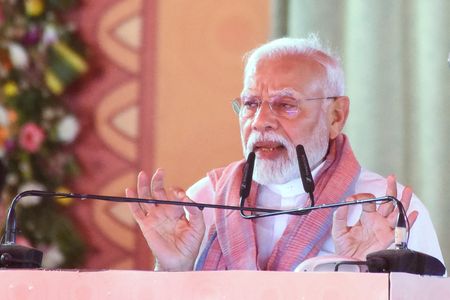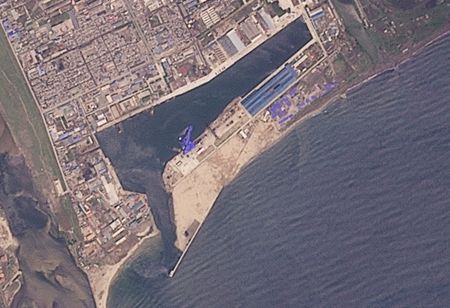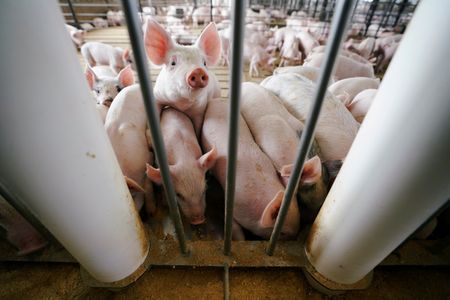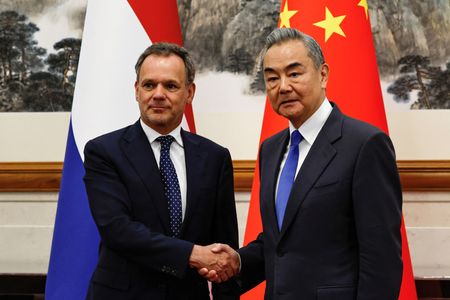By Saeed Shah, Ariba Shahid and Sakshi Dayal
ISLAMABAD, NEW DELHI (Reuters) -Pakistan will not get water from rivers over which India has rights, Indian Prime Minister Narendra Modi said on Thursday, upping the rhetoric in a standoff over water access triggered by a deadly attack in Indian Kashmir.
Pakistan’s chief legal officer, in an interview with Reuters, responded that Islamabad remained willing to discuss water sharing between the neighbours but said India must stick to a decades-old treaty.
India said last month it was suspending the Indus Waters Treaty in a slew of measures after the April 22 attack in Indian Kashmir that New Delhi blamed on Islamabad – a charge Pakistan dismisses.
Any move to stop Pakistan accessing the water would have a devastating impact. The Indus treaty, negotiated by the World Bank in 1960, guarantees water for 80% of Pakistan’s farms from three rivers that flow from India.
The nuclear-armed neighbours have already clashed in their worst military fighting in nearly three decades before agreeing to a ceasefire on May 10.
“Pakistan will have to pay a heavy price for every terrorist attack … Pakistan’s army will pay it. Pakistan’s economy will pay it,” Modi said at a public event in the northwestern state of Rajasthan, which borders Pakistan.
“Pakistan is willing to talk about or to address anything, any concerns they may have,” Pakistan’s Attorney General, Mansoor Usman Awan, told Reuters.
He said India had written to Pakistan in recent weeks, citing population growth and clean energy needs as reasons to modify the treaty. But he said any discussions would have to take part under the terms of the treaty.
Islamabad maintains the treaty is legally binding and no party can unilaterally suspend it, Awan said.
“As far as Pakistan is concerned, the treaty is very much operational, functional, and anything which India does, it does at its own cost and peril as far as the building of any hydroelectric power projects are concerned,” he added.
The ceasefire between the countries has largely held. Indian Foreign Minister Subrahmanyam Jaishankar said there were no current exchanges of fire and “there has been some repositioning of forces accordingly”.
“The (military) operation continues because there is a clear message … that if there are acts of the kind we saw on April 22, there will be a response. We will hit the terrorists,” Jaishankar told Dutch news outlet NOS.
“If the terrorists are in Pakistan, we will hit them where they are,” he added.
India and Pakistan have shared a troubled relationship since they were carved out of British India in 1947, and have fought three wars, two of them over the Himalayan region of Kashmir, which they both claim in full but rule in part.
India accuses Pakistan of backing Islamist separatists in Kashmir, a claim Islamabad denies.
Five people, including three children were killed in a suicide bomb blast on an army school bus in Pakistan’s restive Balochistan province on Wednesday. Pakistan’s prime minister and military accused “Indian terror proxies” of involvement, which India rejected.
Both nations have retaliated since the April attack by halting trade, closing borders and suspending most visas.
(Reporting by Sakshi Dayal; Editing by YP Rajesh and Andrew Heavens)






